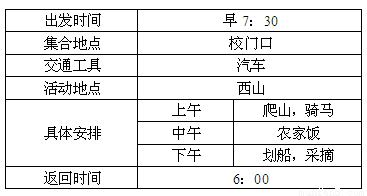Some say college is wasted on the young. So many of us look back at our own college years and realize what we could have done differently to make the most of them. While we can’t go back, we certainly can offer our sons and daughters our best advice to help them make the right choices in college. Hopefully, they will have fewer regrets than we do. Following are five guidelines parents can share with their college-bound kids to put the whole experience in perspective.
EDUCATION IS YOUR FIRST PRIORITY
As soon as you arrive on campus, there will be competing interests. Feel free to check them out but always remember that you are there first and foremost for your education. Go to class prepared and on time. Be engaged during class. Make sure your professor knows you and realizes that you care.
BE RESPONSIBLE
There are many layers of responsibility. Do what you say you will do and, if you can’t, confess it early and communicate clearly. But being responsible isn’t just about meeting your commitments; it is also about taking care of you, your body, and your friends. For example, more than 1800 college students die annually from alcohol-related injuries. Look out for yourself and other people. Make moderate, sensible decisions so you aren’t reeling from(受…影响) the consequences later.
TAKE THE OPPORTUNITY
Incredible opportunities will present themselves: studying abroad, interning at a unique place, trying new things. Don’t let fear prevent you from taking advantage of them. There may never be so much time or as many resources devoted to your betterment again in your life. Say yes to opportunities that will help you grow.
FIND AND BE A MENTOR
Some of the best lessons available to us can come outside of the classroom in the form of a mentor(良师益友). One of the most powerful growth opportunities is being a mentor. Early on, find someone on campus who you feel can help you grow and develop a relationship with him or her. Also find someone for you to mentor. You will reinforce and enrich your own learning experience by teaching someone else.
GET THE JOB DONE
It is natural to occasionally feel you want to quit, when it makes more sense to you to go find a full-time job. Resist that urge. As Jocelyn Negron-Rios, a mother of two, who is currently completing her degree, advises, “No matter how difficult it seems, keep at it because however insurmountable(不可克服的) it feels now multiply that by 10,000 and that is how it feels when you are in your thirties with a full-time job and a family and are trying to pursue a degree.”
1.According to the passage, the most important thing for college students is ______.
A. taking part in different activities
B. working hard to get a degree
C. seizing every chance to try new things
D. improving themselves by learning from the others
2.Which of the following about college life is true?
A. Passing on what you’ve learned in college can help you enrich your learning experience.
B. Make sure that you are responsible for yourself rather than others.
C. Professors will not assess your performances in class but the grades you get in exams.
D. You can make full use of the opportunity whenever you want.
3.What can we infer from the words said by Jocelyn in the last paragraph?
A. Persistence is the key to success when you meet with difficulties in your learning process.
B. It is better if you gain more working experience before you finish your education.
C. As long as you work hard, you can gain a degree even when you are in your thirties.
D. Youth is the best time to learn since you have less burden.
4.What is the main purpose of the passage?
A. To give some rules for the college students.
B. To call on the students to make full use of college years.
C. To summarize some tips for parents to share with their children.
D. To analyze the benefits and difficulties of college life.

